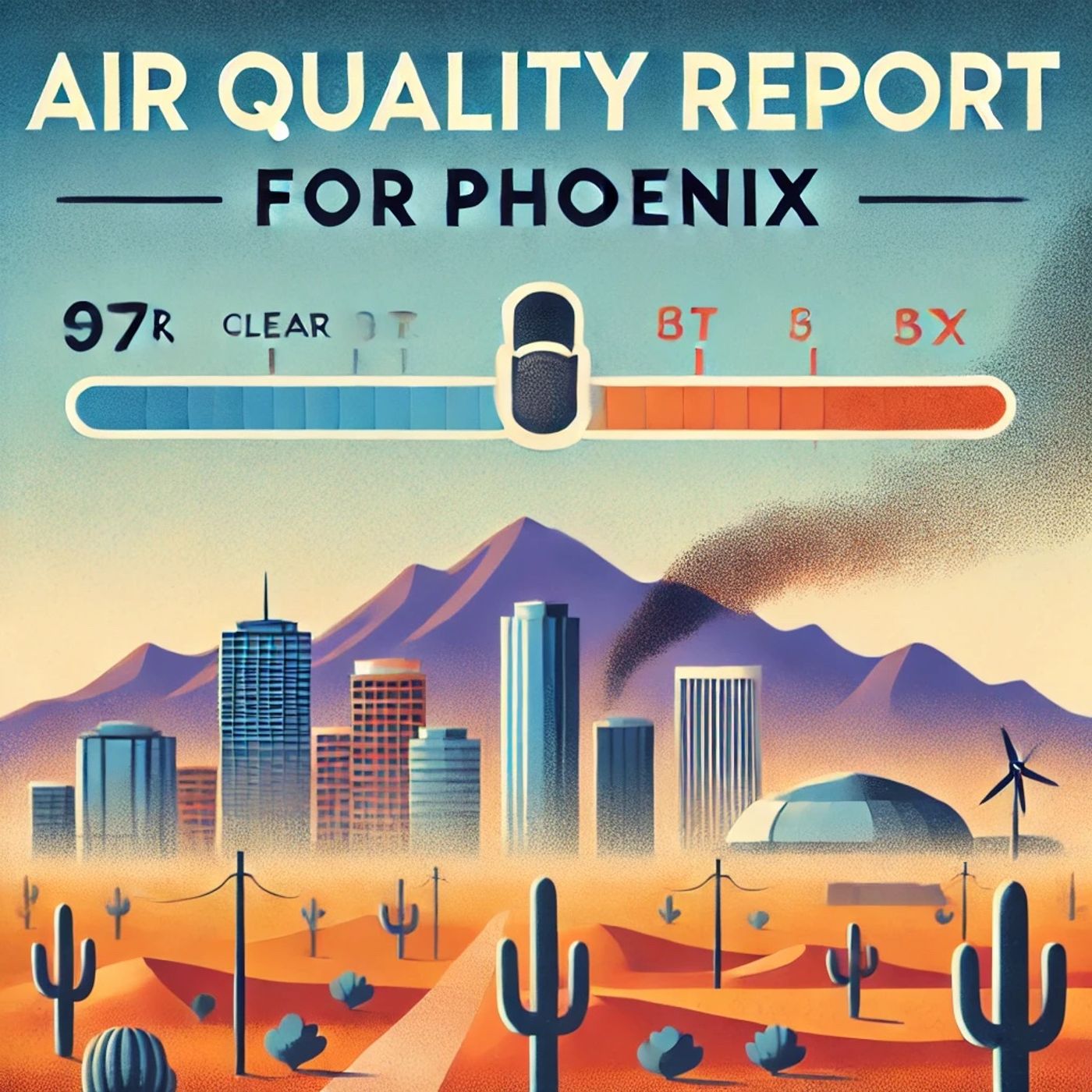Listen "Phoenix Air Quality Raises Concerns Amid Moderate Pollution Levels"
Episode Synopsis
Today, the air quality in Phoenix is a matter of concern for its residents and visitors. As the fifth-largest city in the United States, Phoenix is no stranger to air quality challenges, given its rapid urbanization, high vehicular traffic, and geographic location in the Valley of the Sun. The primary pollutants contributing to today's air quality status are ground-level ozone, particulate matter, and nitrogen dioxide.Ground-level ozone is one of the predominant pollutants affecting Phoenix’s atmosphere. Unlike the protective ozone layer high above the Earth, ground-level ozone is a harmful air pollutant created by chemical reactions between oxides of nitrogen and volatile organic compounds in the presence of sunlight. With Phoenix experiencing plenty of sunshine and higher temperatures, especially in the summer, conditions are ripe for the formation of ground-level ozone.Today, the Air Quality Index, or AQI, for Phoenix is hovering in the "Moderate" range. The AQI is a scale from 0 to 500 used to communicate how polluted the air currently is or how polluted it is forecast to become. An AQI in the "Moderate" range means that air quality is acceptable; however, for some pollutants, there may be a moderate health concern for a very small number of people who are unusually sensitive to air pollution.Individuals with respiratory conditions, such as asthma and chronic obstructive pulmonary disease, as well as children and the elderly, should be cautious. It is advisable for these sensitive groups to minimize prolonged outdoor exertion. Typical symptoms that may arise from moderate air quality conditions include coughing, throat irritation, or shortness of breath.Particulate matter, specifically PM10 and PM2.5, is another significant concern in Phoenix. PM10 refers to large particles, such as dust from construction sites and unpaved roads, while PM2.5 indicates finer particles from sources like vehicle exhaust and wildfires. Today’s levels of particulate matter are within the acceptable range but can pose health challenges for sensitive individuals.One unique factor contributing to Phoenix’s air quality is the city's geographical characteristic known as the "Valley effect." Because Phoenix is situated in a valley surrounded by mountains, pollutants can become trapped in the lower atmosphere, leading to concentrated levels of air pollution. Temperature inversions, where a layer of warm air traps pollutants close to the ground, can exacerbate this problem, particularly in the winter months.The local government and environmental agencies have issued several recommendations to help mitigate the adverse effects of air pollution. Residents are encouraged to reduce vehicle use by carpooling, using public transportation, or biking when possible. Additionally, preventing the use of leaf blowers, reducing idling times for cars, and avoiding burning wood contribute to cleaner air.In conclusion, today’s air quality in Phoenix poses a moderate health risk primarily for sensitive groups. By staying informed and taking precautionary measures, residents can minimize the negative health effects of air pollution. Ongoing community and governmental efforts remain crucial in striving for better air quality in Phoenix and ensuring a healthier environment for all.This content was created in partnership and with the help of Artificial Intelligence AI
More episodes of the podcast Phoenix Air Quality Report - Daily
Phoenix Enjoys Excellent Air Quality Today
23/08/2025
 ZARZA We are Zarza, the prestigious firm behind major projects in information technology.
ZARZA We are Zarza, the prestigious firm behind major projects in information technology.
